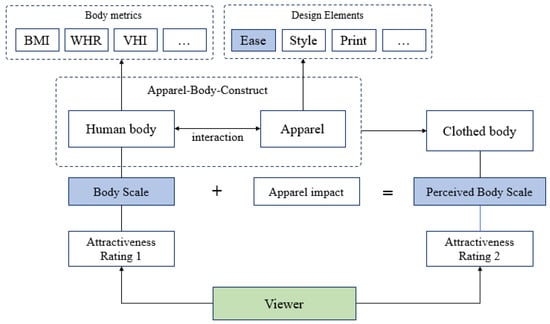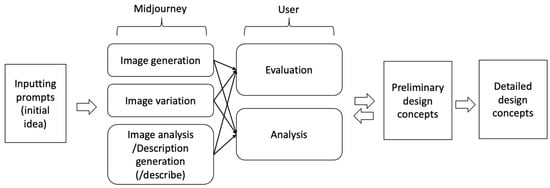Exploring the Future of Creative Economy: Transforming Creative Industries through Innovation, Technology and Enhanced Consumer Engagement
A topical collection in Journal of Theoretical and Applied Electronic Commerce Research (ISSN 0718-1876).
Viewed by 13111Editors
Interests: digitalization in fashion and creative industries; sustainability in creative industries; retailing and consumer behavior; brand and branding
Topical Collection Information
Dear Colleagues,
Creative industries, also known as the creative economy or cultural industries, play a pivotal role in fostering economic growth, cultural enrichment, and innovation across the globe. In the contemporary world, the imperative of sustainability in creative industries has gained increasing significance. These industries possess the potential to both exacerbate and mitigate sustainability challenges. For example, sectors like fashion, design, and architecture often exhibit substantial environmental footprints owing to resource-intensive production, consumption, and waste generation. However, a growing awareness of the necessity for ecological practices within these domains is encouraging creative professionals to adopt eco-friendly materials, energy-efficient technologies, and ethical production methods, thereby diminishing their environmental impact.
Simultaneously, creative industries wield substantial influence in the quest for solutions with environmental and social consciousness. Designers, for instance, possess the capacity to craft products and spaces that not only captivate esthetically but also adhere to principles of environmental responsibility and social consciousness. Moreover, creative industries frequently embrace the preservation and propagation of cultural heritage, which is indispensable for the perpetuation of cultural diversity. These industries also serve as catalysts for innovation, often serving as the wellspring for advancements in materials, renewable energy technologies, and green infrastructure through collaborations with scientists and engineers.
Furthermore, creative industries, particularly those centered on marketing and advertising, possess the power to mold consumer behavior, promoting eco-friendly products and practices while amplifying awareness of environmental and social issues. Additionally, they contribute to the ideals of a circular economy by advocating for the reuse, recycling, and repurposing of products and materials, thereby minimizing waste and conserving resources. In this manner, they align themselves seamlessly with sustainability objectives. Creative industries also hold promise for addressing social sustainability by generating employment opportunities, nurturing cultural diversity, and fostering social inclusion. Through artistic expression, storytelling, and advocacy, creative projects are capable of addressing and mitigating pressing societal concerns.
The purpose of our Topical Collection harmonizes with the overarching scope of the Journal of Theoretical and Applied Electronic Commerce Research, which is to share and debate new ideas and emerging technologies concerned with this rapidly evolving field, including business practices, social, cultural, and legal concerns, personal privacy and security, and communication technologies. Mobile connectivity has become increasingly relevant in everyday life. This Topical Collection serves as an invaluable platform to delve into the emerging development and influence within creative industries. Our primary objective is to explore innovative solutions within creative industries, spanning fields such as fashion, design, cultural heritage, crafts, visual arts, performing arts, advertising, and marketing, among others, with the aim of propelling these industries toward sustainability.
We invite you to embark on this journey of exploration as we navigate the transformative path toward sustainability in creative industries. Contributions are enthusiastically welcomed, with a focus on, but not limited to, the following subjects:
- Digital fashion;
- Virtual retail;
- Digitalization in supply chain management;
- Personalized content and marketing communication;
- Digital marketing strategies for creative products;
- Technology and innovation in creative production;
- Innovation in material digitalization for creative industries;
- Embracing sustainability and eco-friendly practices;
- AI-enhanced creativity in creative industries;
- Exploring virtual and augmented-reality applications;
- Blockchain and NFTs’ impact on creative industries;
- The influence of live streaming and virtual events;
- AI-enhanced production and consumption in the creative sector;
- The role of social media and online communities in creative industries;
- Digital transformation in supply chain management for creatives;
- Advancing circular economy practices in the creative sectors;
- Cultural appropriation in creative productions;
- Strategies for cultural preservation in creative works;
- Digital media and its implications for sustainability;
- Investigating consumer perceptions of sustainability in creative industries;
- Immersive experiences and their impact on audience engagement;
- Content marketing evolution (including ephemeral and interactive content).
We look forward to receiving your contributions.
Dr. Chuanlan Liu
Dr. Sibei Xia
Collection Editors
Manuscript Submission Information
Manuscripts should be submitted online at www.mdpi.com by registering and logging in to this website. Once you are registered, click here to go to the submission form. Manuscripts can be submitted until the deadline. All submissions that pass pre-check are peer-reviewed. Accepted papers will be published continuously in the journal (as soon as accepted) and will be listed together on the collection website. Research articles, review articles as well as short communications are invited. For planned papers, a title and short abstract (about 100 words) can be sent to the Editorial Office for announcement on this website.
Submitted manuscripts should not have been published previously, nor be under consideration for publication elsewhere (except conference proceedings papers). All manuscripts are thoroughly refereed through a single-blind peer-review process. A guide for authors and other relevant information for submission of manuscripts is available on the Instructions for Authors page. Journal of Theoretical and Applied Electronic Commerce Research is an international peer-reviewed open access quarterly journal published by MDPI.
Please visit the Instructions for Authors page before submitting a manuscript. The Article Processing Charge (APC) for publication in this open access journal is 1000 CHF (Swiss Francs). Submitted papers should be well formatted and use good English. Authors may use MDPI's English editing service prior to publication or during author revisions.
Keywords
- creative economy
- digital fashion
- virtual reality
- creative industries
- innovation
- technology
- digital marketing strategies
- creative design
- eco-friendly materials
- cultural heritage
- AI-enhanced
- meta verse











